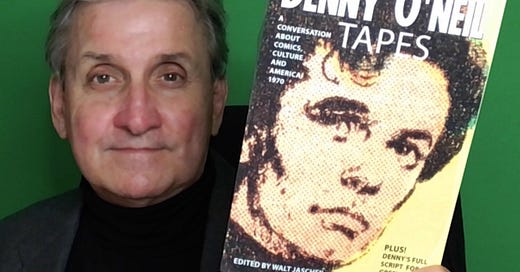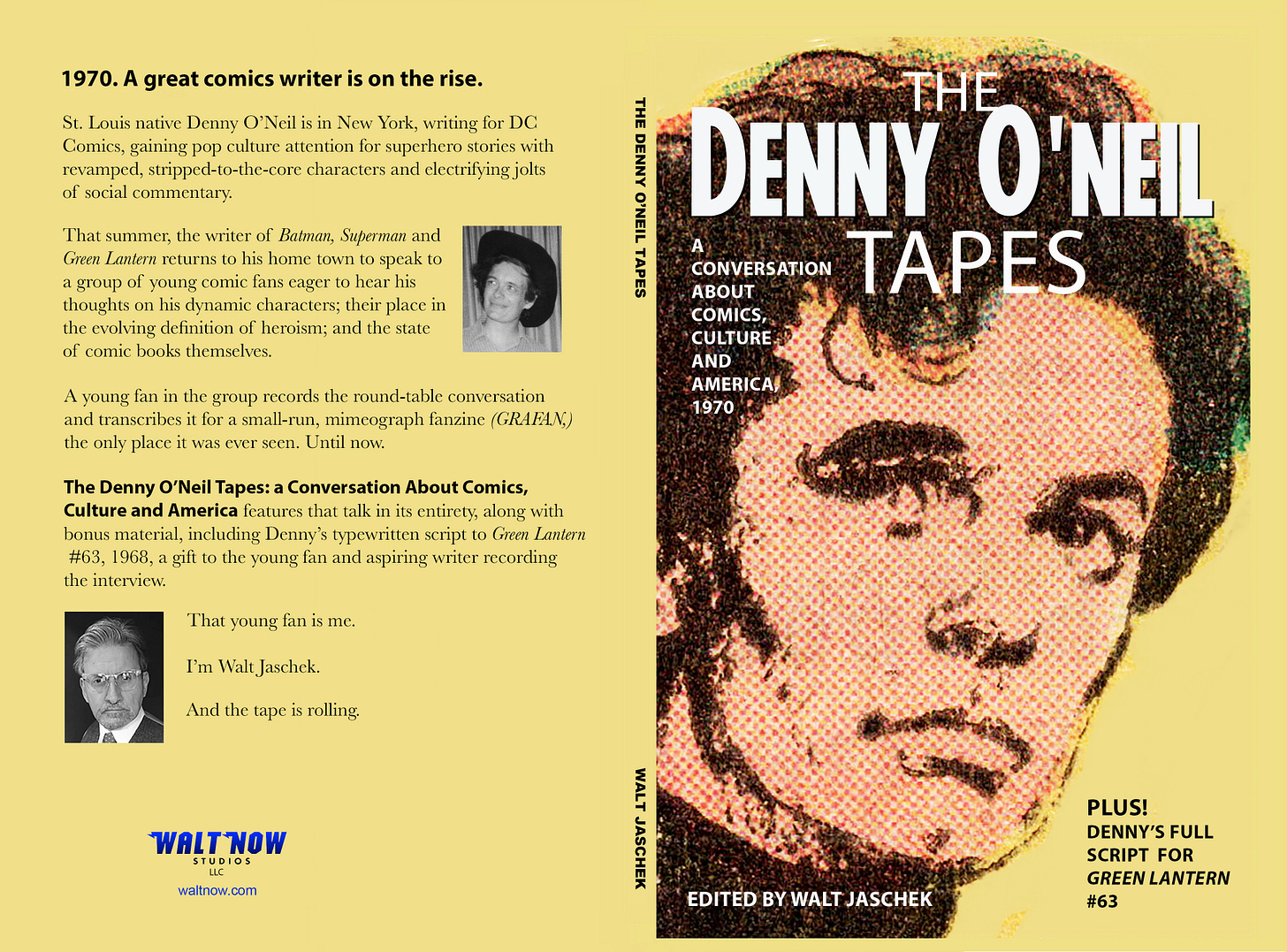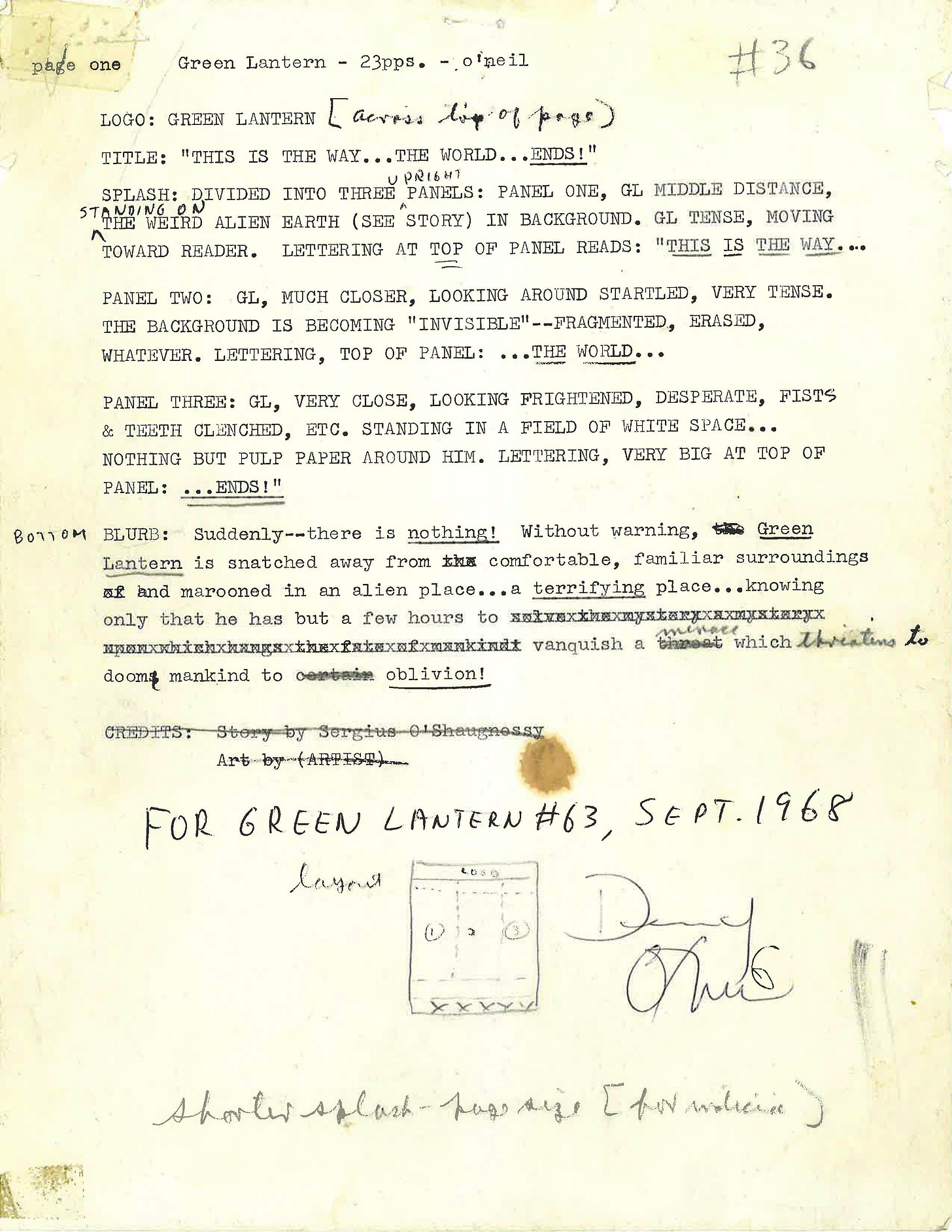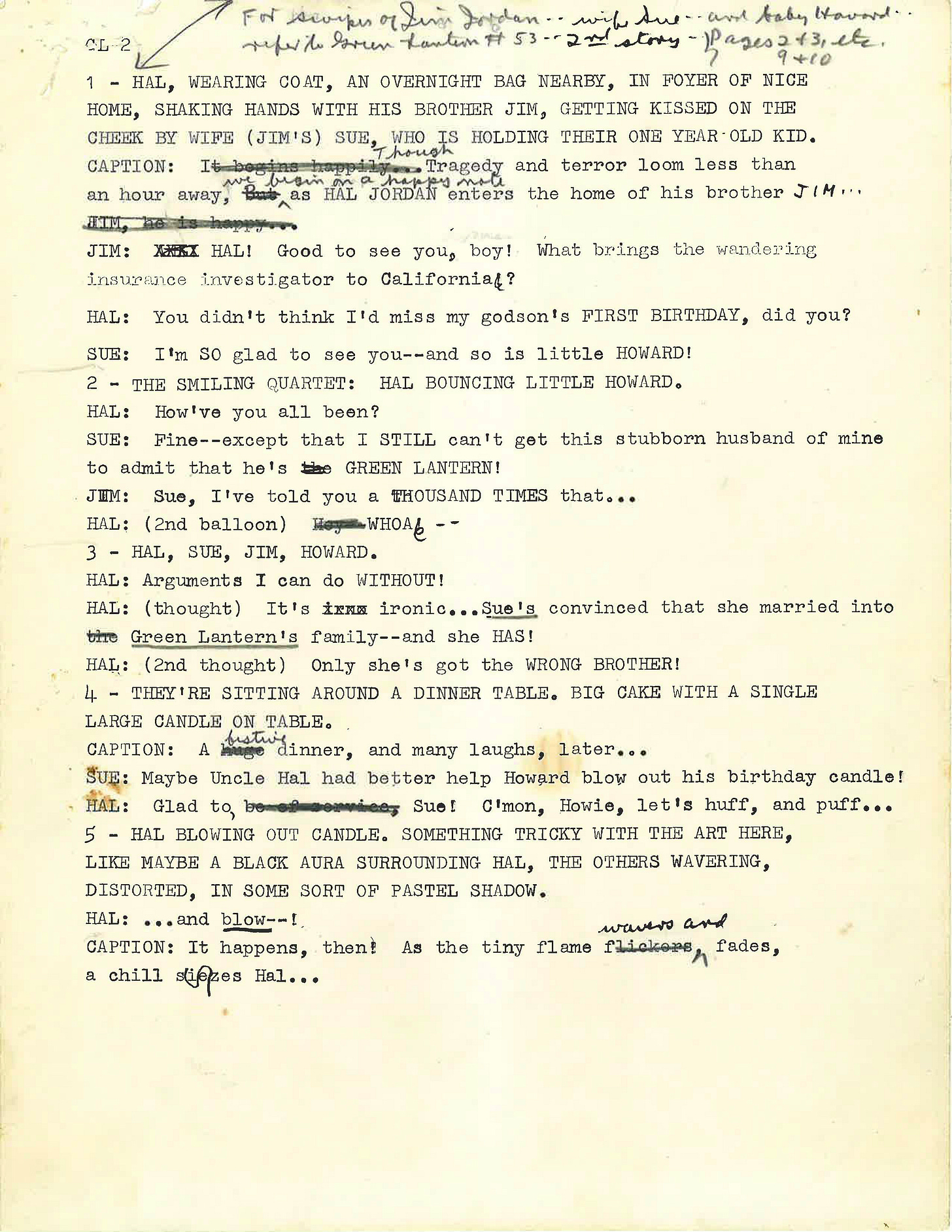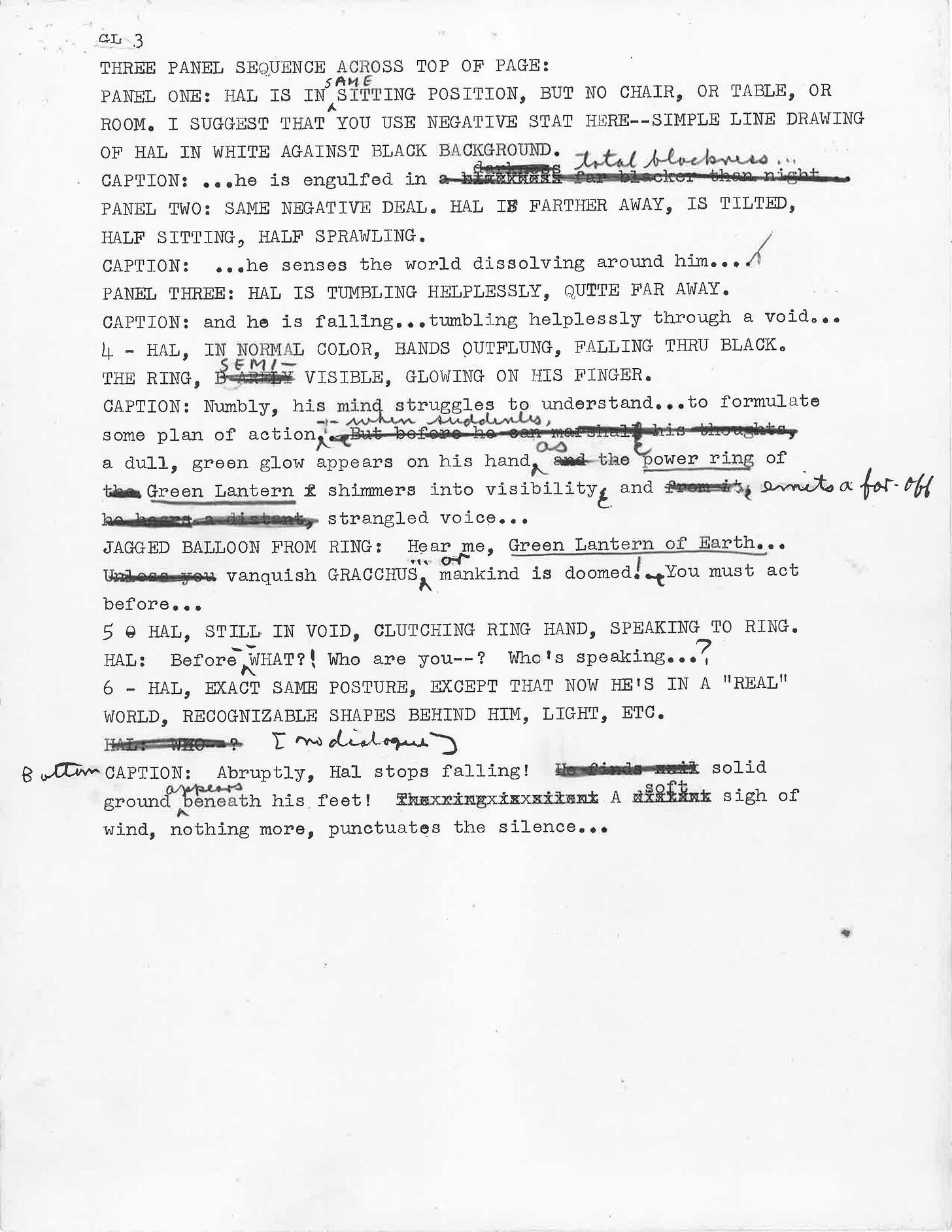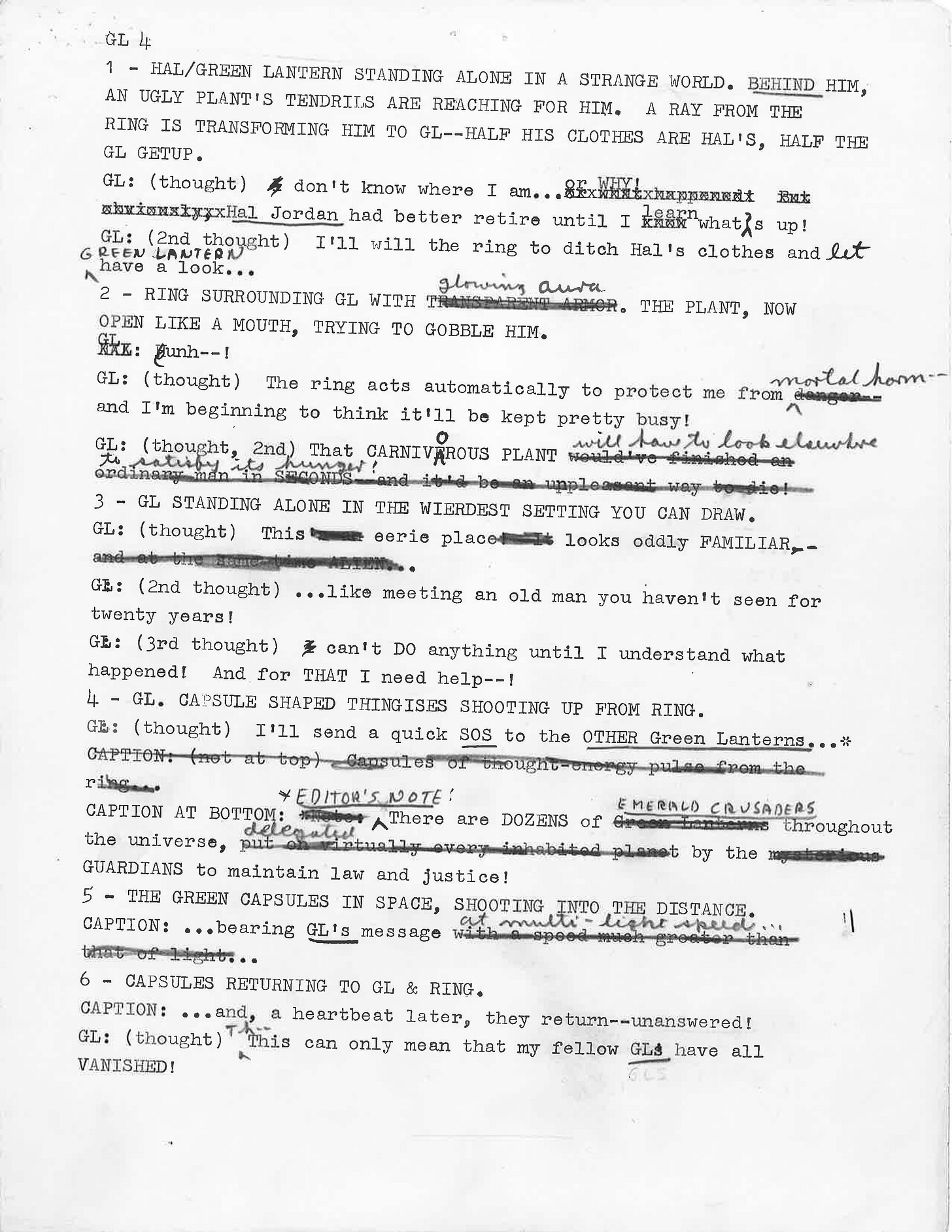The Denny O'Neil Tapes: backstory and intro
Walt's tribute to the late, great comic book writer from St. Louis (now on Amazon as paperback and hardback) includes a long interview + Denny bio + scans of a Denny Green Lantern comic script!
These post contains three parts:
1. News release / backstory about The Denny O’Neil Tapes
2. Walt’s introduction to The Denny O’Neil Tapes
3. Video preview of The Denny O’Neil Tapes
3. Preview pages of Denny’s Green Lantern script
Walt Jaschek holding a copy of his new book on Amazon, THE DENNY O’NEIL TAPES, published in 2023 by Walt Now Studios. There’s more information about it in the news release and video below.
Part 1: News release and book backstory
For immediate release:
Late Comics Writer From St. Louis Lauded in New Book
When comics writer and St. Louis native Denny O’Neil died in 2022, he left a virtual vault of highly regarded superhero stories for Marvel and DC Comics, including Batman, Superman, and Spider-Man. Known for helping to bring “relevancy” into comics in the 1970s via his award-winning, influential runs on Green Lantern and Justice League, O’Neil worked as prolific writer and editor in the comics business for decades.
Cut to present: local author and comic book fan Walt Jaschek rediscovered a long interview with O’Neil conducted by a group of young, St. Louis comic fans during a July, 1970 visit by the writer to his hometown. Jaschek was a participant in that interview, recorded it and transcribed it for a local fanzine. He was 15 years old at the time.
The Denny O’Neil Tapes: A Conversation About Comics, Culture in America, Jaschek’s new book, re-presents that interview in its entirety, the first time it has been seen in wide circulation. The book also offers samples of the late writer’s published works from the early 1970s, and a complete, typewritten O’Neil comic book script for a Green Lantern comic book, with published pages for comparison.
The 111-page book is available in paperback and hardcover on Amazon.com, and in select, local comic book stores.
Topics discussed include O’Neil’s takes on the iconic natures of the superheroes he writes; the evolving definition of heroism in society; the passion and quirks of his creative collaborators; and the possible fate of comic books themselves.
Says Jaschek: “My first goal in publishing this book is to honor Denny O’Neil as a writer of great pop culture influence, one whom many in his own hometown might not know.”
“Until I can help get him a star on the St. Louis Walk of Fame,” Jaschek says, “I hope this book can be a first step toward more posthumous recognition in the region.”
Jaschek’s secondary goal is, he says, “to preserve for comic fans and historians that little-seen, 1970 interview we did during the writer’s early ascendency. It was a thrill to be part of it.”
O’Neil was born in St. Louis in 1939 to a family who owned a grocery in North City for decades. He graduated from St. Louis University, served in the U.S. Navy, and began a writing career that led him to New York and the comic industry.
Jaschek is a retired, St. Louis-based copywriter whose career creating ad campaigns for national brands earned him in 2018 induction into the St. Louis Media History Foundation Hall of Fame. He’s currently working on more books, comics and screenplays.
Denny O’Neil in 1971. Photo by Walt Jaschek. As published in The Denny O’Neil Tapes on Amazon. There’s also a signed copy by me in our EBay store.
Part 2: Walt’s introduction to “The Denny O’Neil Tapes.”
Great conversations linger. Great conversations last.
But great conversations can get lost.
Enthusiastic voices exchanging news, jokes and opinions remain in the memory, and sometimes only in the memory, if nobody is around to record what was said, or at least write it down.
Impressions fade, participants pass, and – especially pre-internet – analog recordings disappear into The Phantom Zone. Even early transcriptions can be victims of their own publishing and distribution limitations. (Think limited-run, mimeograph fanzines; we’ll get to that.)
But sometimes a great conversation is recorded, as audio, and carefully transcribed into text, and published, or at least (as in this case) republished in a place it can be permanently accessed.
Welcome to The Denny O’Neil Tapes.
The central feature of this book is a transcription of a recorded, roundtable Q&A conducted in July, 1970 with the late, great comics writer and editor Denny O’Neil – then newly awash in pop culture attention for his work on Batman, Green Lantern and more. The hosts and questioners were a small group of comic book fans in St. Louis, Missouri – including me.
I was 15 years old.
The venue was a Sunday afternoon meeting of our local comic book club, The Graphic Fantasy Society of St. Louis, acronym GRAFAN, an affiliation of (mostly) teen-age fans, collectors and gestating creators, gathering monthly. and publishing fanzines about the gatherings.
Five of us fans met Denny that day in the home of fellow GRAFAN member Bob Gale, my senior by a couple of years. (Before you ask, yes, that Bob Gale: co-writer of the “Back to Future” movies.) Also in the room tossing questions were GRAFAN co-founders Len and Mike McFadden, in their late teens, and a seasoned, much “older” fan, 20something Bob Schoenfeld, publisher of the beautiful, “high-end” zine Gosh Wow. Len, Mike and I would end up as editors of the much “lower-end,” clubzine GRAFAN, named for the club (duh) and printed via hand-cranked, ink-filled mimeograph machines.
Denny, then a tall, 27-year-old St. Louis native visiting from his new, New York home, put the “special” in “special guest” that day. I believe he enjoined at the invitation of the older Bob, with whom he had connected at a New York comic convention earlier that year. The approximately 90-minute conversation centered around what we superhero superfans wanted to know was Going On Behind The Scenes at DC Comics, and was recorded on a portable cassette tape recorder planted in the middle of the room.
The interview would end up as a three-part series in GRAFAN, mailed to members, where it was seen by (sigh) dozens. The first part appeared in GRAFAN #6, Dec., 1970, where then-editor Mike McFadden “teed up” Denny for readers:
“Born in 1939 with a cheesy cowboy hat on his head in St. Louis, Missouri, Denny O’Neil has progressed to be considered one of comic books’ best writers – and worst dressers. He still wears that cheesy cowboy hat.
“His early life consisted of stocking shelves at O’Neil’s Market, his family’s business; military school; and fantasy. ‘Often pinned on a bath towel and played super-hero,’ he once said, and at GRAFAN’s meeting in July, 1970, he actually looked like Bat Lash.
“He attended St. Louis University, where he majored in English Literature, minored in Creative Writing and Philosophy. From there he left for the Navy, and upon discharge, began a career of drifting that included teaching high school; investigating insurance fraud; a brief stint as a movie extra; and crime reporting.
“It was as a reporter that he wrote a series of articles on comics that won him a pro job in New York. Since then, he has scripted Superman, Batman, Nightmaster, Challengers of the Unknown, Justice League of America, X-Men, Patsy Walker, Adam Strange, Green Lantern and Bat Lash. Just to name a few.”
After lively banter and much laughter with the affable but candid Denny, we wrapped the interview, heading en masse to the local PBS television affiliate, where the rising-in-popularity writer would appear as guest on a half-hour, face-to-face interview program, name of which lost to time. I remember looking down from a glass wall Green Room onto the sparsely-lit set, thinking the entire day was memorable and magical. In a pure Comic Geek way, of course.
As for those cassette tape, they were hungrily grabbed for transcription. For that purpose, that tape was passed from club execs Len and Mike… to me. Sure! Give it to the kid! He’ll transcribe it!
And I did. Twice, in fact.
First, in that hot summer of 1970, sitting in my parents’ un-airconditioned basement, playing the cassettes on my own little player, hitting “play” and “rewind” hundreds of times until I had what I considered an accurate, text representation of the convo. “Auto transcribe?” “Voice recognition?” The stuff of dreams.
That original transcription will have to suffice as source, because – as I’m sure you are sorry to learn – those tangible tapes no longer exist in my possession. Lost to time? Passed back to the McFaddens? I don’t know. Believe me, if I had them, I’d digitize and publish the audio, too. Heck, I’d make an audiogram on YouTube.
Instead, in reaction to some comic historians who have reached out looking for the original interview installments in those-hard-to-find GRAFAN issues, I’ve transcribed them again, “taking it from the top” and re-keyboarding while squinting at my few, remaining copies of those inky, mimeograph pages. Collecting all parts in one handy place is worthy chore, I hope you agree, with now, in this format, the opportunity to include scans of select comic pages to amplify the discussion, a technology completely unavailable to 1970 zinesters.
In doing so, this little bit of personal time travel has made me even more cognizant of its passing. Four of the original six people in the Room Where it Happened are no longer happening. Len, Mike, Bob S., and Denny himself have crossed the Rainbow Bridge, sorry to say. I’m more aware than ever we all shuffle off this fandom coil, with or without our zine and comic collections intact. Mimeo ink fades, comics yellow, cassettes get lost. But sometimes, we had conversations.
And sometimes, conversations last.
Walt Jaschek, 3/3/23
Part 3: Video preview of the book
(As seen on my YouTube channel.)
Part 4: Pages from Denny O’Neil’s script to Green Lantern #36
In addition to the excitement and fun of being part of this conversation, 15-year-old me had the bravery (or was it audacity?) to ask Denny if he had a script handy for this wannabe writer to study, even briefly.
From a brown, leather satchel he pulled his typewritten manuscript for Green Lantern #63 (1968,) “This is the Way the World Ends.” The script had been edited by hand (and in pencil) by DC editor Julius Schwartz, another Silver Age treasure. Denny handed it me to keep and autographed it. It’s a treasured part of my collection, and a great blueprint for a close-up study of the construction of superhero storytelling, panel by panel, balloon by balloon, coffee stain by coffee stain.
I offer scans of it here for further inspection, interspersing a few published pages to compare with the script; to show how it was interpreted by penciller Jack Sparling; and to detail the attention paid by the editor to all. Reading the typewritten script anew, we see how heavily DC writers of that era were edited – and often rewritten, right there on the page – by the editors, who became de facto co-writers in their own… write.
But back to this Hal Jordan Green Lantern adventure, a way-out journey one character in it calls “a work of pure imagination.”
Here’s how “…the World Ends…”
Begins.
– Walt
See the entire script in The Denny O’Neil tapes, now on sale.

